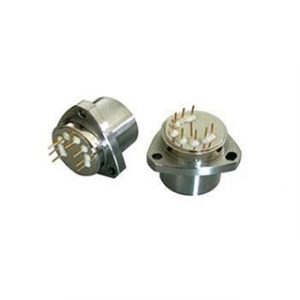What is insulation resistance tester?
Jan. 30, 2024
Electrical systems play a crucial role in our modern lives, powering everything from homes to industries. To ensure the safety and reliability of these systems, it is essential to regularly inspect and test the insulation resistance of electrical components. This is where an Insulation Resistance Tester becomes indispensable.
What is an Insulation Resistance Tester?
An Insulation Resistance Tester (IRT) is a specialized instrument designed to measure the resistance offered by the insulation material between the conductive parts of electrical equipment. In simpler terms, it evaluates the effectiveness of insulation in preventing current leakage in electrical systems.

How Does It Work?
The IRT applies a high voltage to the insulation under test and measures the resulting current flow. The principle behind this lies in Ohm's Law (V=IR), where voltage (V) is applied, and the current (I) and resistance (R) are measured. By knowing the applied voltage and the current flowing through the insulation, the tester calculates the insulation resistance.
Significance in Electrical Maintenance
Regular testing of insulation resistance is crucial for identifying potential issues before they escalate into serious problems. A decrease in insulation resistance may indicate the presence of moisture, contamination, or damage to the insulation, posing a risk of electrical failure or even hazards like electrical fires.
Types of Insulation Resistance Testers
There are various types of Insulation Resistance Tester available, ranging from basic handheld devices to more advanced digital models. Some testers come with additional features such as data logging, Bluetooth connectivity, and advanced analytics, providing comprehensive insights into the condition of electrical insulation.
Applications of Insulation Resistance Testing
Insulation resistance testing is applicable across a wide range of electrical systems, including transformers, motors, generators, cables, and switchgear. It is a standard procedure in preventive maintenance programs, ensuring the integrity of insulation in diverse industrial and commercial settings.
How to Choose Peeling Cling Tester Services?
10 Questions You Should Know about the Benefits of Meditation for Stress Relief
Understanding Box Compression Test: KGF Explained
How Does the Peel Test Method Work?
Key Questions to Ask When Choosing a Loop Tack Test Method
How to test the hot tack property of plastic package for ...
Surface Roughness Comparison: Comparator Blocks vs. Traditional Methods
Key Benefits of Using an Insulation Resistance Tester
Early Detection of Issues: IRTs help in identifying insulation problems at an early stage, allowing for timely corrective measures and preventing catastrophic failures.
Enhanced Safety: Ensuring proper insulation minimizes the risk of electrical shocks, fires, and other safety hazards associated with faulty electrical systems.
Compliance with Standards: Regular insulation resistance testing is often a requirement for compliance with industry standards and regulations, ensuring the longevity and reliability of electrical systems.
Cost Savings: By identifying and addressing insulation issues promptly, IRTs contribute to cost savings by avoiding unplanned downtime and expensive repairs.
Conclusion
In conclusion, an Insulation Resistance Tester is a vital tool in maintaining the safety and reliability of electrical systems. Its ability to assess the condition of insulation helps prevent electrical failures, ensuring the seamless operation of various equipment. Incorporating regular insulation resistance testing into maintenance practices is not just a regulatory requirement but a proactive step towards a safer and more efficient electrical infrastructure.
For more details please contact Hengfeng
Additional resources:How can I optimize a function generator for my testing needs?
How to Choose the Right Cut Off When Measuring ...
Power Analyzer vs Oscilloscope: Which Tool is Best for Me?
10 Questions You Should Know about Applications Of Spectrum Analyzer
Rotary Turbo Nozzle Buyer's Guide - How to Pick the ...
Are Cheap Generators Worth the Investment Now?
The Benefits of Using Frequency Counter
128
0
0
None
None
Related Articles
-
125
0
0
-
124
0
0
-
106
0
0
-
118
0
0
-
14
0
0
-
271
0
0
-
292
0
0
-
284
0
0









Comments
All Comments (0)